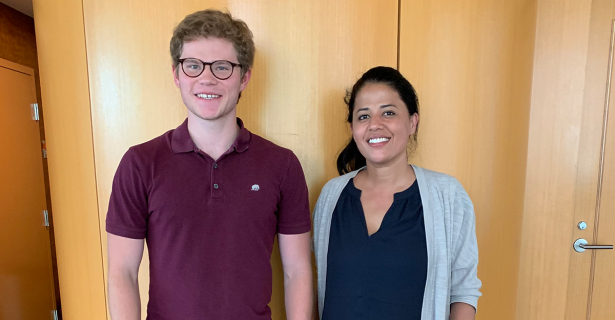This week marks my tenth and final week at the Albert Einstein Institution (AEI). My time spent working with Executive Director and nonviolent resistance scholar Jamila Raqib has been truly wonderful. Serving as both a time to reflect on the basic political freedoms that many of us take for granted, as well as a space to study resistance theory and its many nuances, I am forever grateful to have been given this opportunity. At the end of this week, I will return to my home on the West Coast for the last two weeks of summer, and though I will be grateful for the downtime before classes, I will surely miss the time I have spent delving into contemporary protest movements.
This summer has been filled with interesting case studies. From Hong Kong to Puerto Rico, one of my biggest tasks has been to stay up to date on how these movements were progressing. I feel that reading so many articles — especially on such contentious issues — has given me a far better ability to detect bias in foreign media sources. Such a skill, while by no means perfect, is an important piece of doing research in any field, especially that of geopolitics and international diplomacy.
Working at AEI has also given me insight into the life of renowned scholar and AEI founder Gene Sharp and his theories. Last week, I was tasked with reading a critique of his theories, which painted much of his activities and ideas as anti-leftist and a tool for American influence during the Cold War. It was interesting reading another perspective on someone who I had only heard positive things about up to that point.
From a first impression, nonviolent resistance may seem to be a political tool to achieve democracy or more just governance. However, one of my last tasks for the summer has opened my eyes to new ways to use this tool, primarily with regard to the climate movement. Several organizations, most notably Extinction Rebellion, have used the principles of Martin Luther King, Jr, Mahatma Gandhi, and Sharp in conducting campaigns to shift environmental policy. I found that often times there is little difference between political and social justice causes — at least in terms to strategy and tactics.
After seeing the importance of media and the impact that a dedicated movement can have, I aim to continue my monitoring of current resistance movements over the fall semester. While this internship has helped me develop my research and writing skills, perhaps my most important take away has been a shift in the way I think about protests and activism. Previously, much of their activities and decisions were black boxes to me. If I looked at something like the Hong Kong movement, all I saw were article headlines and the outline of a massive organization. What I was missing seeing were the lives of the people behind the scenes. It takes a lot of work and thinking to make a resistance movement successful. This perspective change has also given me more to think about regarding activist movements closer to home. Come the fall, I hope to build on this interest. With every answer AEI has given me has also come a dozen questions.

